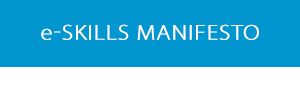ΝΕΑ

22/01/2016
The future of jobs in the digital world
What is the future of jobs in the digital world? Will the Fourth Industrial Revolution create more jobs, and what are the benefits that digital innovation will bring to Europe?
The potential of the digital revolution is that it can be a channel through which people can realise their full set of capabilities, according to a recent report by the World Economic Forum.
There is no doubt that digital disruption is not only shaping the global economy, but also changing business models and the employment landscape. Emerging technologies, big data, automation and cognitive computing are amongst the main global drives behind the digital transformation. Many current job roles are being redefined, and the need for upskilling amongst workers is more critical than ever. A different skills set is needed for the digital economy; as work roles change, the skills needed for success in the 21st century job market are being shifted towards more transversal skills such as problem-solving, collaboration, and critical thinking:
Education and upskilling are part of the transformation process. By giving people the right technical and social skills, governments and industry can ensure that they bring the best out of their human capital, and that as many citizens as possible can fulfil their roles in the digital society of today.
In this rapidly changing environment, cross-industry and public-private collaboration are essential to ensure that Europe’s citizens are equipped with the right skills for tomorrow’s economy. The eSkills for Jobs campaign is the timely initiative bringing together government bodies, private sector companies and NGOs which aims to equip people with the right skills for success in the technology invested world.
Read the Future of Jobs report here.
Interested in technologies, the Internet of Things and all things digital #WEF16 debates at @Davos? Follow @eskills4jobs and @wef to get updates and snapshots.










